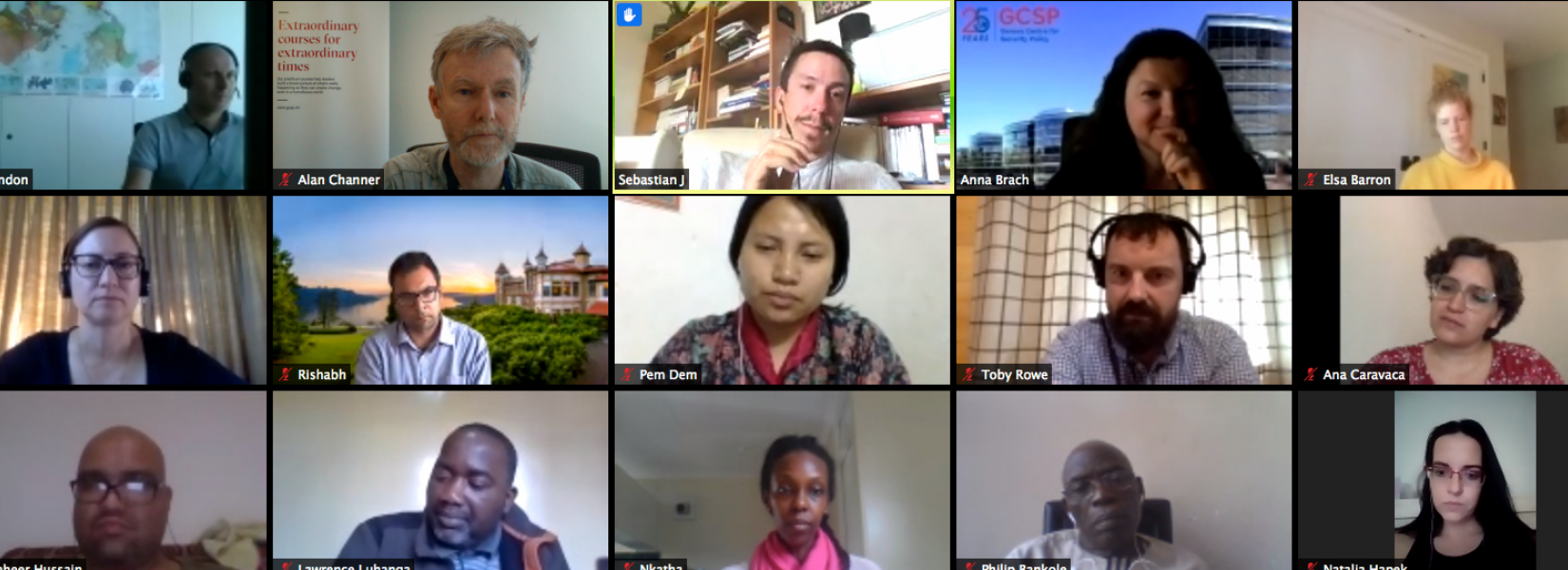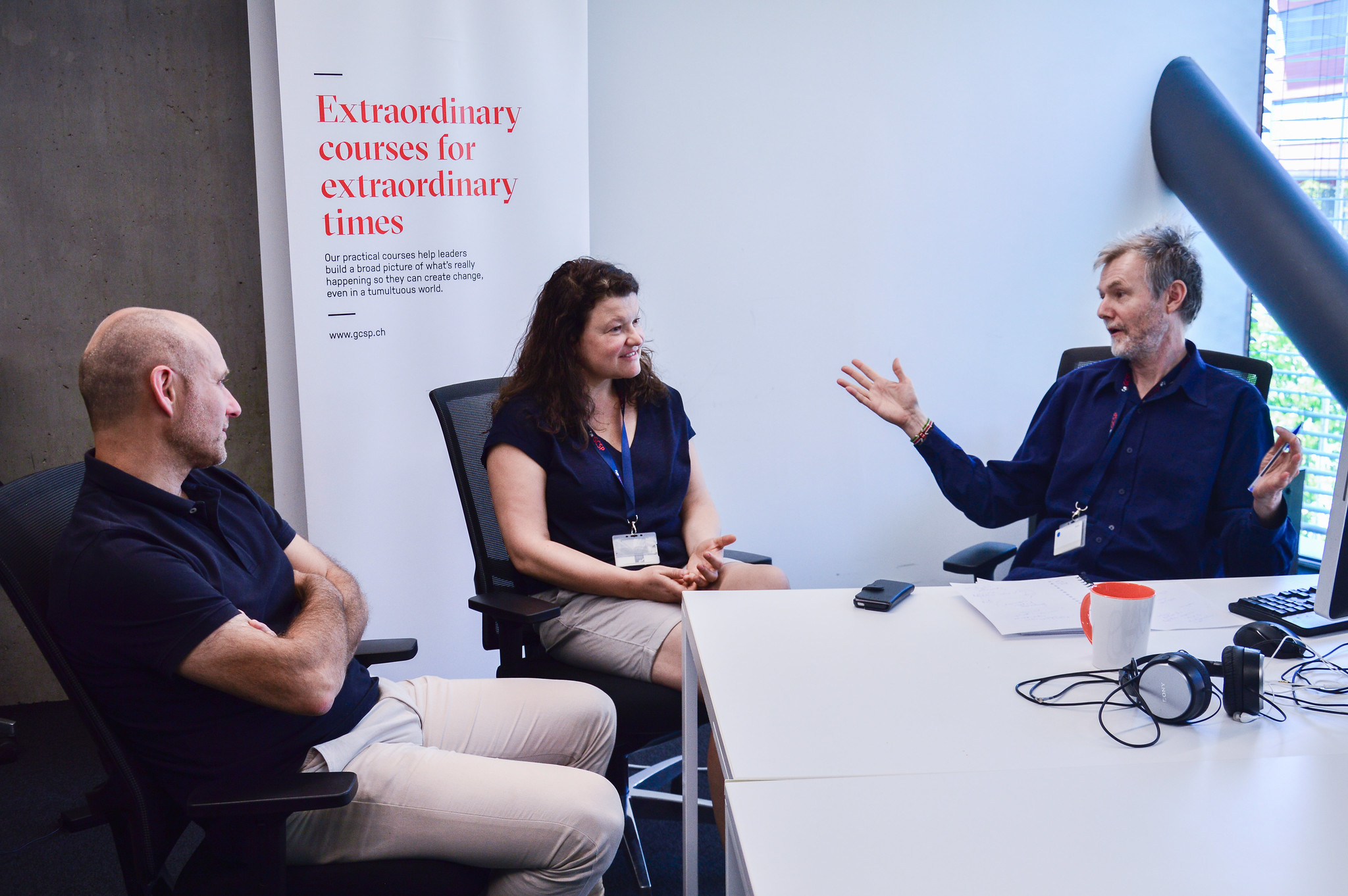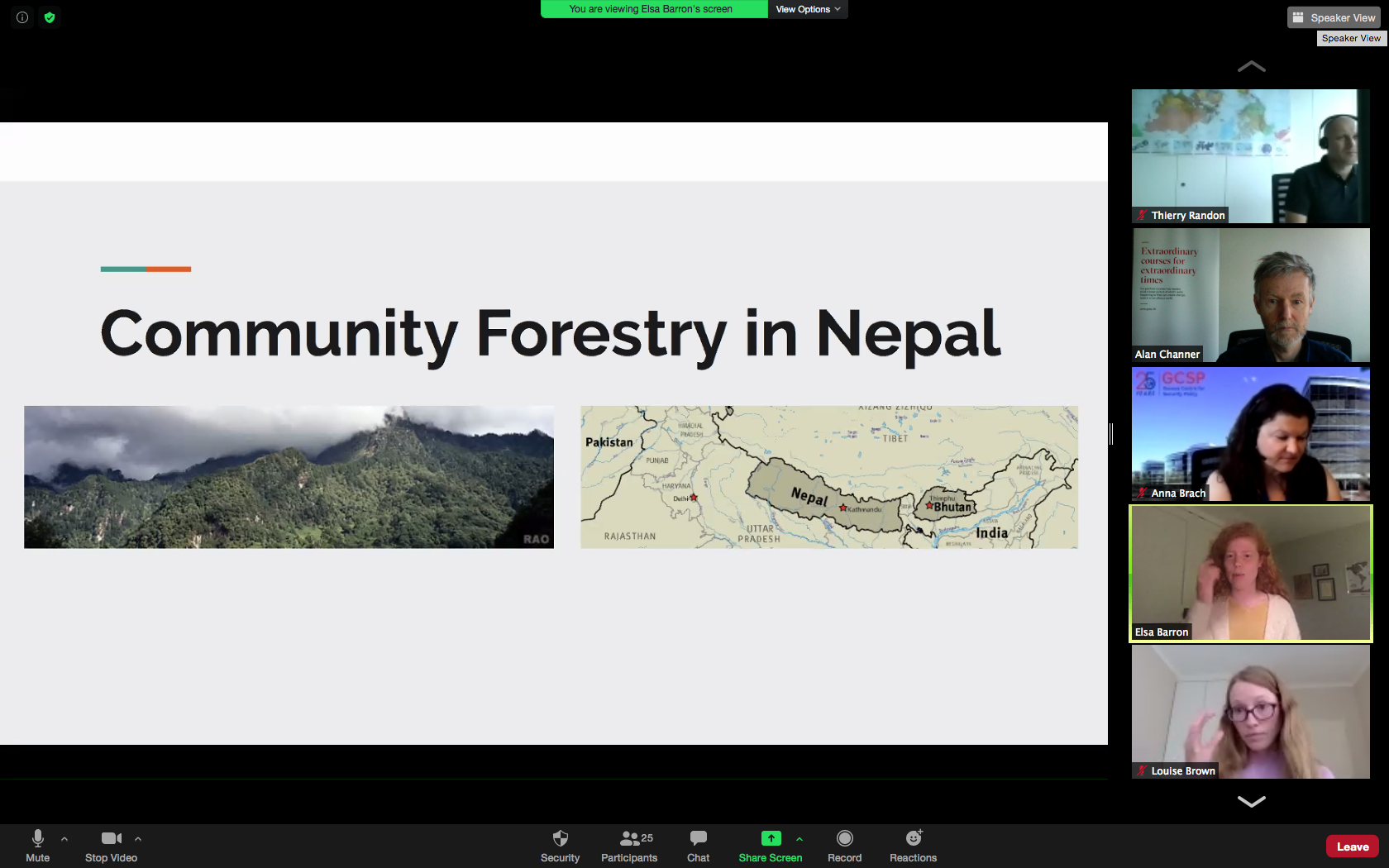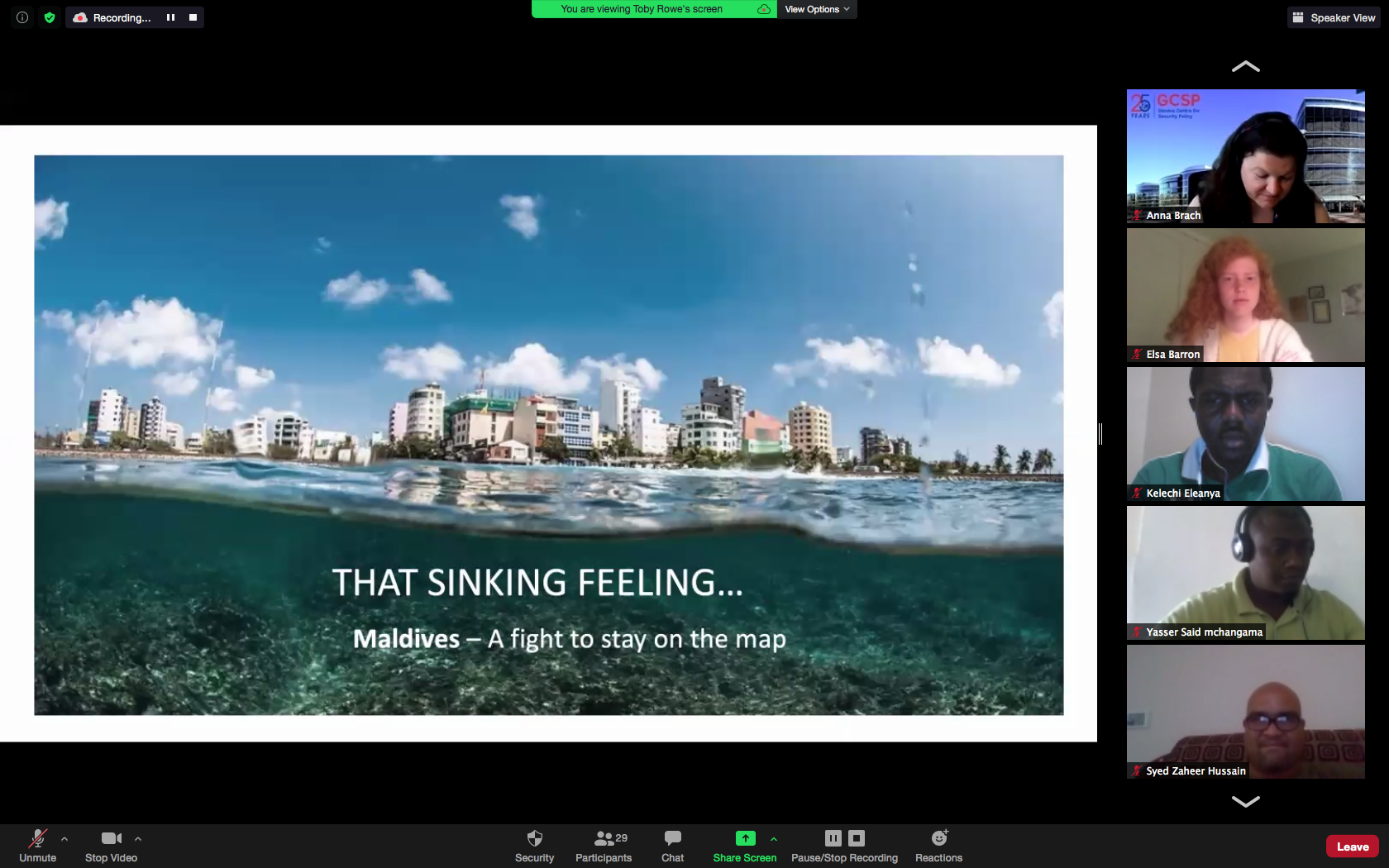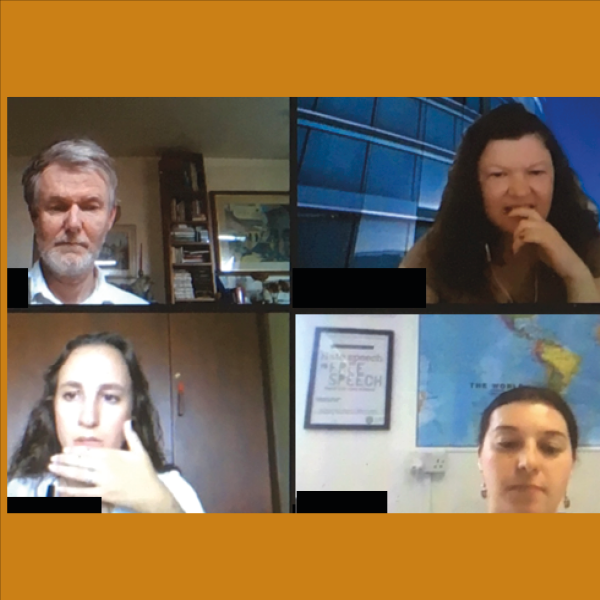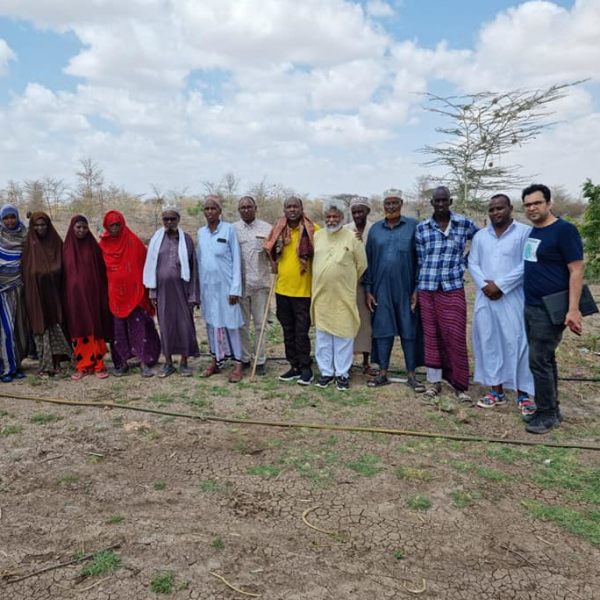Summer Academy 2020: expansive possibilities for the future
Caux Dialogue on Environment and Security 2020
24/07/2020By Alan Channer and Karina Cheah
‘It’s one of the best ways ever with the present covid pandemic.’
‘We ended just when I was wishing we had more time to learn and interact.’
‘If possible I would like to go over it again.’
‘This will change the world.’
The effusive feedback from participants in the five-day 2020 Summer Academy on Land, Climate and Security vindicated the difficult decision to take the course online. Four months ago, this had seemed an impossible task to the academy’s co-directors Anna Brach and Dr Alan Channer. Thankfully, zoom calls and web-based learning platforms enabled Initiatives for Land, Lives and Peace, the Geneva Centre for Security Policy and IofC Switzerland to host a successful event, with 28 participants from 20 countries. The Africa Climate Change Fund of the African Development Bank provided core funding.
‘What will it take to forge community-based solutions to deforestation, land degradation and massive flooding?
‘Why does only 1% of international funding to prevent and/or adapt to the effects of climate change reach the world’s poorest people?’
‘What part can each of us play in our own situations to safeguard the Earth?’
These and other questions were addressed by a panel of distinguished practitioners and academics. The participants joined the Caux Dialogue on Environment and Security (CDES) for high-level webinars featuring case-studies on:
- Community-based wildlife conservation in Namibia
- Participatory watershed management in India
- Civil society environmental action in Nepal
- UN-led dialogues on land rights in the Democratic Republic of Congo
- Farmer-managed natural regeneration in semi-arid Africa.
The case-study on farmer-managed natural regeneration was picked up by the online magazine Geneva Solutions under the headline, ‘Conquering deforestation with a pocket-knife’. It quoted the webinar’s moderator, Louise Brown from Namibia: ‘Communities have the answers to their challenges.... With the right incentives, simple solutions can be taken forward to improve the environment, society and the economy all in one go.’
The core of the Summer Academy was group work conducted in zoom breakout sessions. Participants on different continents were able to brainstorm and collaborate on environmental restoration in their own contexts, before presenting them in the plenary sessions for feedback and further discussion, including on how solutions could be ‘future-proofed’.
Land reclamation and inter-island migration in the Maldives; social entrepreneurship and waste disposal in the Comoros Islands; environmental peacebuilding on Akassa Island in the Niger Delta; and community forestry in Nepal and Bhutan were some of the issues explored.
The online Summer Academy went so well that the organizers were close to tears during the final session and the participants didn’t want to leave. It faded out slowly, as everyone bade farewell. A Polish participant played Bach on the cello; a Bhutanese participant shared a folk song about the beauty of nature; a Nigerian sang, ‘We are the world’.
Although the 2020 Summer Academy was vastly different from the 2019 edition, participant Nkatha Kobia from Kenya, who attended both, found that the wealth of experience from fellow participants was the same. ‘The energy and enthusiasm that was felt in the classrooms at Caux was also reflected across the computer screens via the virtual platforms,’ she explained, adding that coming to Caux in person brings an invaluable dimension of human interaction and inspiring physical location.
‘The 2020 Summer Academy on Land and Security will be memorable for being the pioneer online version of the course,’ Kobia concluded. ‘This opens new and expansive possibilities for the future of the dialogue series at Caux.’
- Find out more about the Summer Academy on Land, Security and Climate
- Find out more about the Caux Dialogue on Environment and Security
Photos: Leela Channer, Alan Channer
